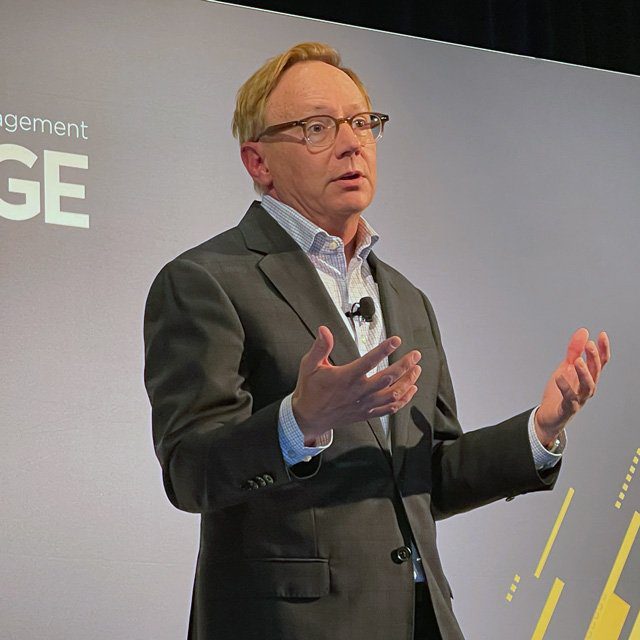DeVoe: Why Growth Is So Important for RIA Firms

What You Need to Know
Growth, whether it’s organic or through M&As, is crucial to RIA firms, David DeVoe says.
It helps not only the firm, but also its advisors, other staff and clients, he argues.
Succession planning is just as important as growth planning, but many RIAs still don’t have a succession plan in place.
Growth, whether organically or through mergers and acquisitions, is crucial for RIA firms, and it’s not only good for its owners but also its advisors and other staff, as well as its clients, according to David DeVoe, CEO and founder of the RIA consulting firm DeVoe & Co.
Since the start of the pandemic, RIAs have been “doing a much better job than other parts of the industry,” including hybrid RIAs and wirehouses, he said at the recent EDGE conference in Hollywood, Florida, in an organic growth workshop.
RIAs had historically grown faster after a crisis “because they take care of their clients better than any model out there,” he explained. “And once that crisis is over,” those clients will talk with their family and friends and say how their advisor helped them, and at least some of those they speak to will realize their wirehouse rep didn’t do such a great job of helping them, he noted.
That leads to more referrals, and “more than 40% of growth comes from client referrals,” he pointed out. “So during a crisis where RIAs really shine, we’ve typically seen an uncoiling spring after that,” he said. Although that hasn’t happened quite yet, he told attendees: “I’d like to think that the spring will actually uncoil next year.”
Based on what he’s seen so far, DeVoe said the “good news is 72% of advisors will say that their growth is higher” than it was a year ago.
The Why
So why is growth so important for an RIA firm? For one thing, its “valuation will increase, but there’s a variety of other elements as well,” according to DeVoe. A company that is growing is also “really in a position to improve what your company does,” he said.
He explained: “As you achieve your scale specialization, as you get bigger, you can add more services or capabilities or even products, you can get into deeper financial planning or alternative investments [and] a whole variety of things.”
A growing RIA has to put more processes in place, but it’s “becoming a more industrial-strength company, and you mitigate a lot of risk for the company,” he said.
“So it’s really good for the company,” he said. But he added: “It’s also good for your clients [because] the bigger you get, the better you’re able to serve clients. You have more and more staff, junior and senior. You can tailor your services more. You can be more responsive to what their needs are. And … you can have a greater set of products and capabilities that you can offer them.”
The growth also helps advisors and other staff at the firm, he went on to say.
First off, he asked rhetorically: “If you’re an employee in an organization that’s flat or not growing, what’s happening to your career path? It’s staggering, right? A faster-growing firm will create better career paths.”
The How
There are only a small number of ways in which an RIA firm can grow, DeVoe said.
They are market performance, adding new clients, asset movement among existing clients, M&As, and one-off events that raise added capital, he said.




